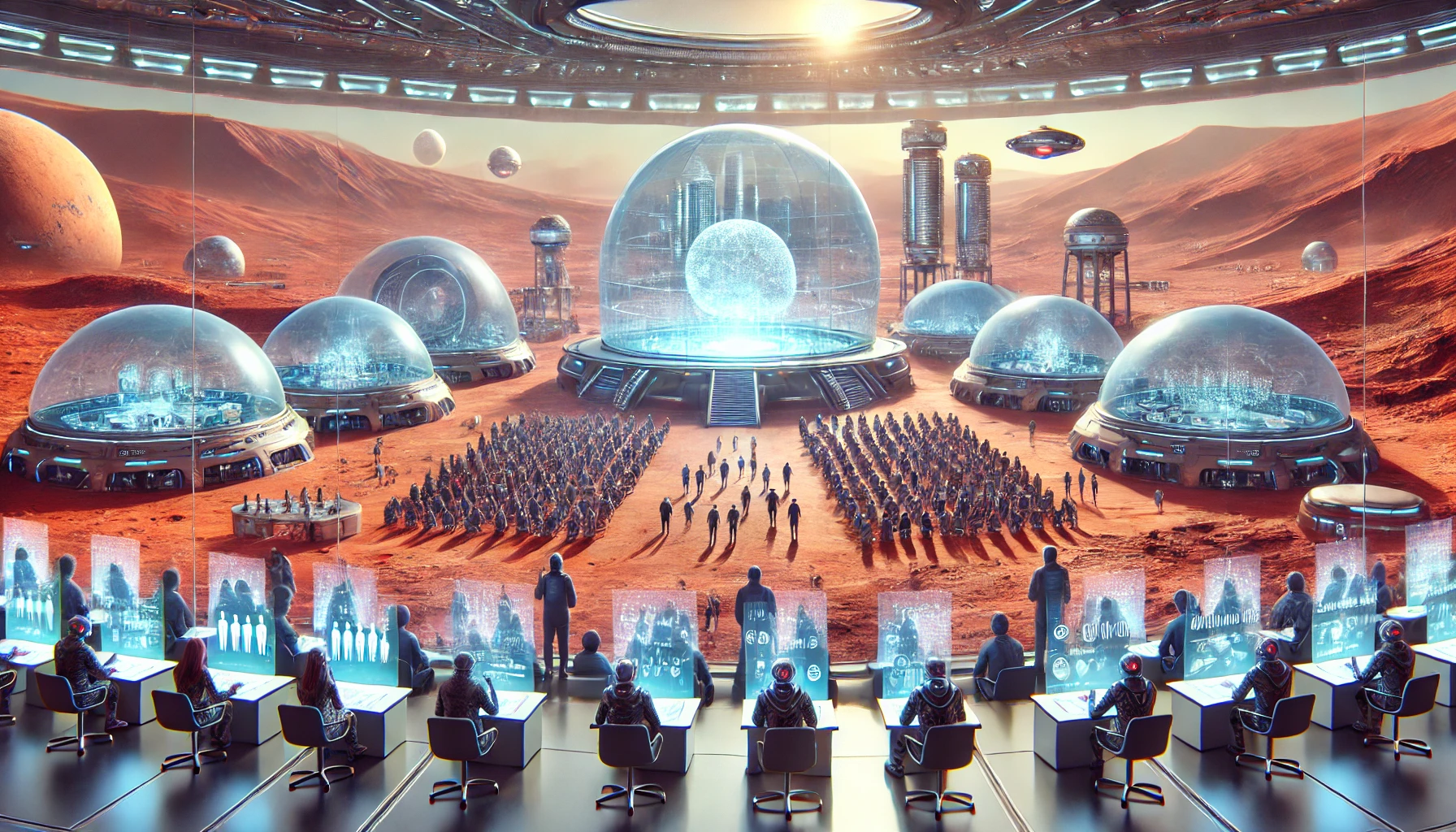With the red planet no longer just a dream but a genuine frontier, the question isn’t just how we’ll get there—it’s how we’ll govern ourselves once we arrive. Elon Musk has reignited this cosmic debate with a bold declaration on X.com (formerly Twitter): the Martians will decide how they are ruled. His recommendation? A direct democracy, where every voice matters.
Why Direct Democracy? Musk’s Game-Changer
Forget the bureaucratic layers of Earth’s representative democracies. Musk envisions something pure, efficient, and daring: direct democracy, where every individual votes on laws and policies, leaving no room for political middlemen.
But why direct democracy on Mars? Consider this:
- Smaller Population: Early settlers, numbering in the hundreds or thousands, could make direct voting feasible.
- Cutting-Edge Tech: Blockchain-powered voting and AI-assisted governance could eliminate many logistical challenges.
- Unity Over Division: On Mars, survival depends on cooperation, not political gridlock.
This governance model isn’t just radical—it’s a clean slate for humanity. Imagine designing a system unburdened by centuries of Earth’s political baggage.
Mars: An Independent World or Earth’s Colony?
Musk’s vision isn’t just about governance; it’s about freedom. “The Martians will decide…” is a powerful call for autonomy.
But here’s the twist: international law doesn’t exactly agree. The 1967 Outer Space Treaty declares that no nation can claim ownership of celestial bodies. So, does that mean Mars would operate under some global Earth-centric framework? Not if Musk has his way.
An independent Mars could:
- Avoid Earthly Territorial Disputes: No Earthly claims or conflicts.
- Foster Unity Among Settlers: A shared goal and a sense of community.
- Develop Unique Systems: Tailored to Martian challenges, from resource scarcity to extreme environmental hazards.
Think of it as the ultimate planetary startup, innovating from scratch.
The Countdown to Colonization
Musk isn’t just talking governance—he’s building the road to get there. According to his timeline:
- Uncrewed Starships could touch down on Mars within two years.
- Crewed Missions are likely by 2028-2029, aligning with the next Mars transfer window, when Earth and Mars are closest.
SpaceX’s Starship program is pushing the boundaries of human capability, but setting up a society on Mars isn’t just about rockets. The real challenge begins after landing.
The Martian Challenge: What Governance Must Solve
Mars won’t be forgiving. Every decision will matter. Here’s what a governance system must tackle:
- Resource Survival: Oxygen, water, food—all in limited supply. Laws must prioritize sustainability and fair distribution.
- Conflict Resolution: Disputes are inevitable. A transparent legal system must be in place from day one.
- Psychological Resilience: Living in isolation under harsh conditions could strain mental health. Governance must prioritize a connected, supportive community.
- Technology Dependence: Cybersecurity and ethical tech governance are critical. On Mars, a system failure could mean life or death.
Mars governance isn’t just about politics—it’s about survival, innovation, and creating a society that thrives in the most extreme conditions humanity has ever faced.
Why This Matters for Earth
Mars governance is more than a Martian issue. It’s an opportunity to rethink governance for all of humanity.
- Could Direct Democracy Work on Earth? In smaller communities, perhaps.
- Will Lessons from Mars Shape Future Global Policies? Possibly.
- Is This the Testing Ground for a Unified Human Identity? Maybe.
Elon Musk’s vision challenges us to think big, not just about rockets and space suits, but about the future of civilization itself.
The Final Word
In Musk’s words: “The Martians will decide how they are ruled.” This isn’t just a prediction—it’s a call to action. Mars represents a fresh start, a chance to rewrite the rules of society. Whether or not we embrace Musk’s direct democracy, one thing is clear: the future of Mars—and maybe Earth—depends on bold ideas, unshackled by the past.

